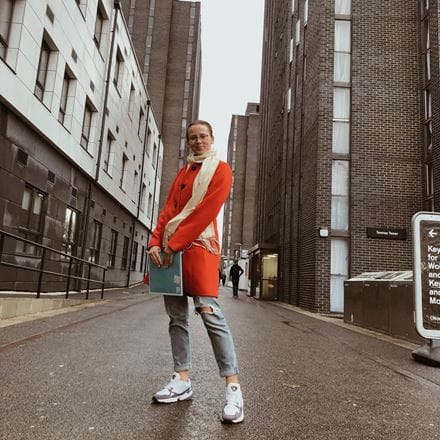What is a conversion Masters course?
While most Masters-level qualifications require an academic background in the chosen subject area, conversion Masters courses are designed for students who have an undergraduate degree in an unrelated subject.
Studying a conversion Masters course is an efficient way to upskill in a new subject area without taking another undergraduate degree.
Commonly asked questions
Why study a conversion Masters course?
Conversion Masters courses are great for people who want to change career or to train for a specific field of work. For example, if you have an economics undergraduate degree but want to work in data science, or if you studied criminology and you want to become CPS-accredited by studying psychology.
These courses enable students to access academic study in a different discipline to their undergraduate degree, and potentially unlock new opportunities for employment or further research study. You can essentially use a conversion Masters course to switch specialism and explore a new career pathway.
Which departments offer conversion Masters courses?
Our academic departments that offer conversion Masters courses are:
- Department of Economics
- Department of Government
- Department of Literature, Film, and Theatre Studies
- Department of Psychology
- Department of Psychosocial and Psychoanalytic Studies
- Department of Sociology and Criminology
- Essex Business School
- School of Computer Science and Electronic Engineering
- School of Health and Social Care
- School of Mathematics, Statistics and Actuarial Science
- School of Philosophical, Historical and Interdisciplinary Studies
See further down this page for a full list of courses.
How long is a conversion Masters course?
Our conversion Masters courses are studied either full- or part-time. Full-time study is 12 months, and part-time study is 24 months. Please be aware that not all courses offer part-time study. You can see what study modes each course offers on the individual course pages further down this page.
When does the course start?
Our conversion Masters courses start in either January or October each year. October is the traditional start of every academic year, and most courses are available to start in October. January is an additional entry point which may be more convenient for you. Only some of our conversion Masters courses offer a January entry point. You can see what entry points each course offers on the individual course pages further down this page.
What qualification will I graduate with?
You will graduate with a Masters-level qualification, the same as all other Masters students.
How can I apply?
Learn more about how to apply and other important things to consider during the application process.
Please be aware that some of our courses may close earlier than the deadlines we publish, so if you are interested in one of our courses, we recommend applying as soon as possible so that you don't miss out.
What scholarships and funding opportunities are available?
There's also a wide range of financial support options for postgraduate students to consider, including loans, scholarships and bursaries.
We also offer an Alumni Loyalty Discount to students who are currently studying their undergraduate degree at Essex and then progress onto a postgraduate taught course, or are progressing onto a research degree, or are returning to Essex after time away from education and previously studied at Essex.
Can I apply for accommodation and live on campus?
There will be a range of student accommodation available for all full-time postgraduates who are starting their conversion Masters course in October or January.
Once you have received and accepted an offer of study from the University, you will be able to apply for accommodation on campus. Aim to get this done as soon as possible to secure your preferred option. Take a look at the choices available for postgraduate students, which includes North Towers, The Meadows and University Quays at our Colchester Campus.
Can I commute to campus for my studies?
We have lots of students who commute to campus instead of living on campus. There are many reasons why a student may prefer to do this, but most reasons are either personal or financial.
We provide support to commuting students, including wellbeing support, development with writing, maths, research, and study skills, and will give you access to a peer mentor who can offer practical advice and information. You will also benefit from all of the facilities and services that students who live on campus benefit from, so you never miss out.
Our campuses have excellent road and rail links nearby. You can see more about travelling to our Colchester and Loughton campuses on our webpages.




